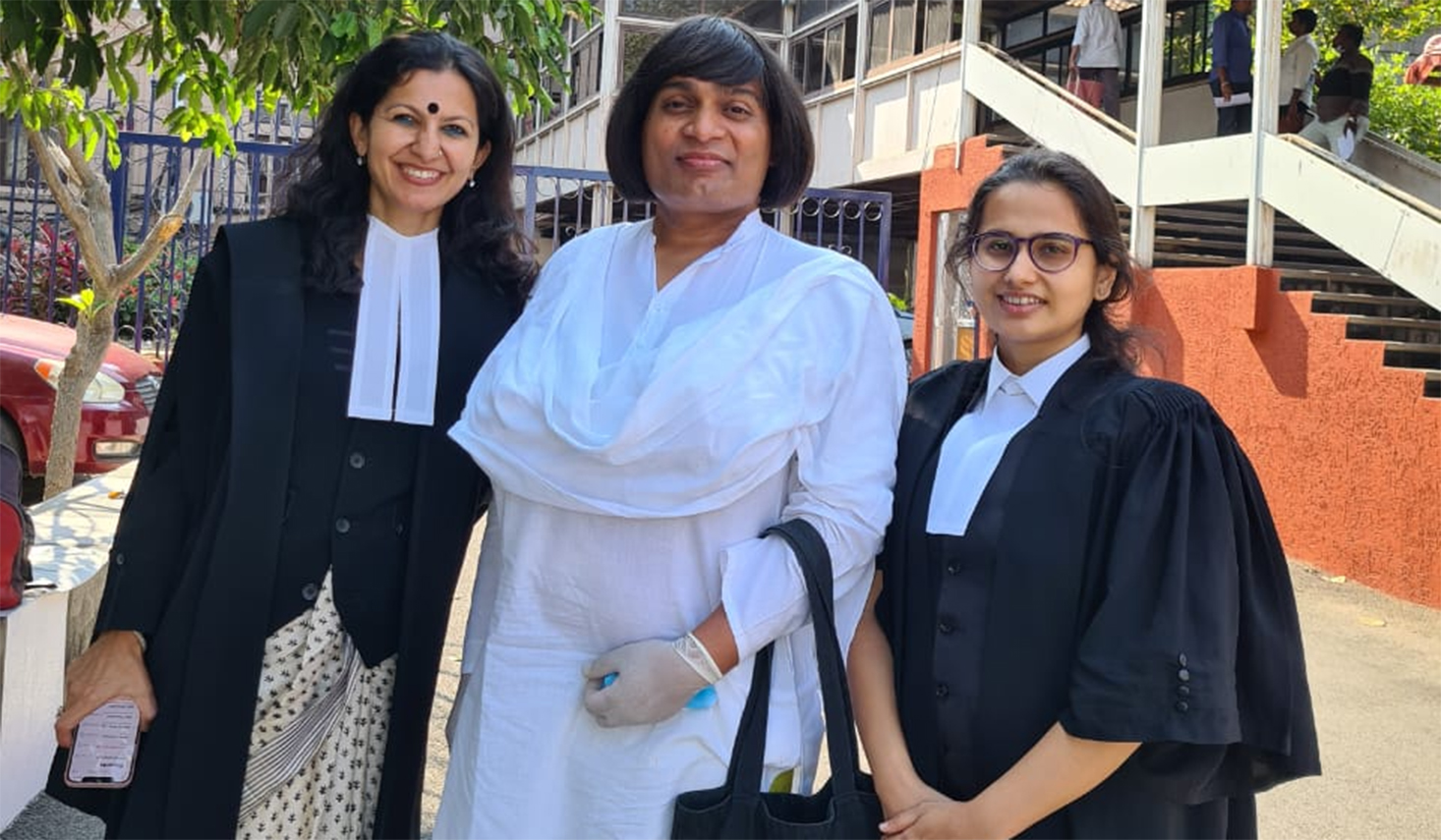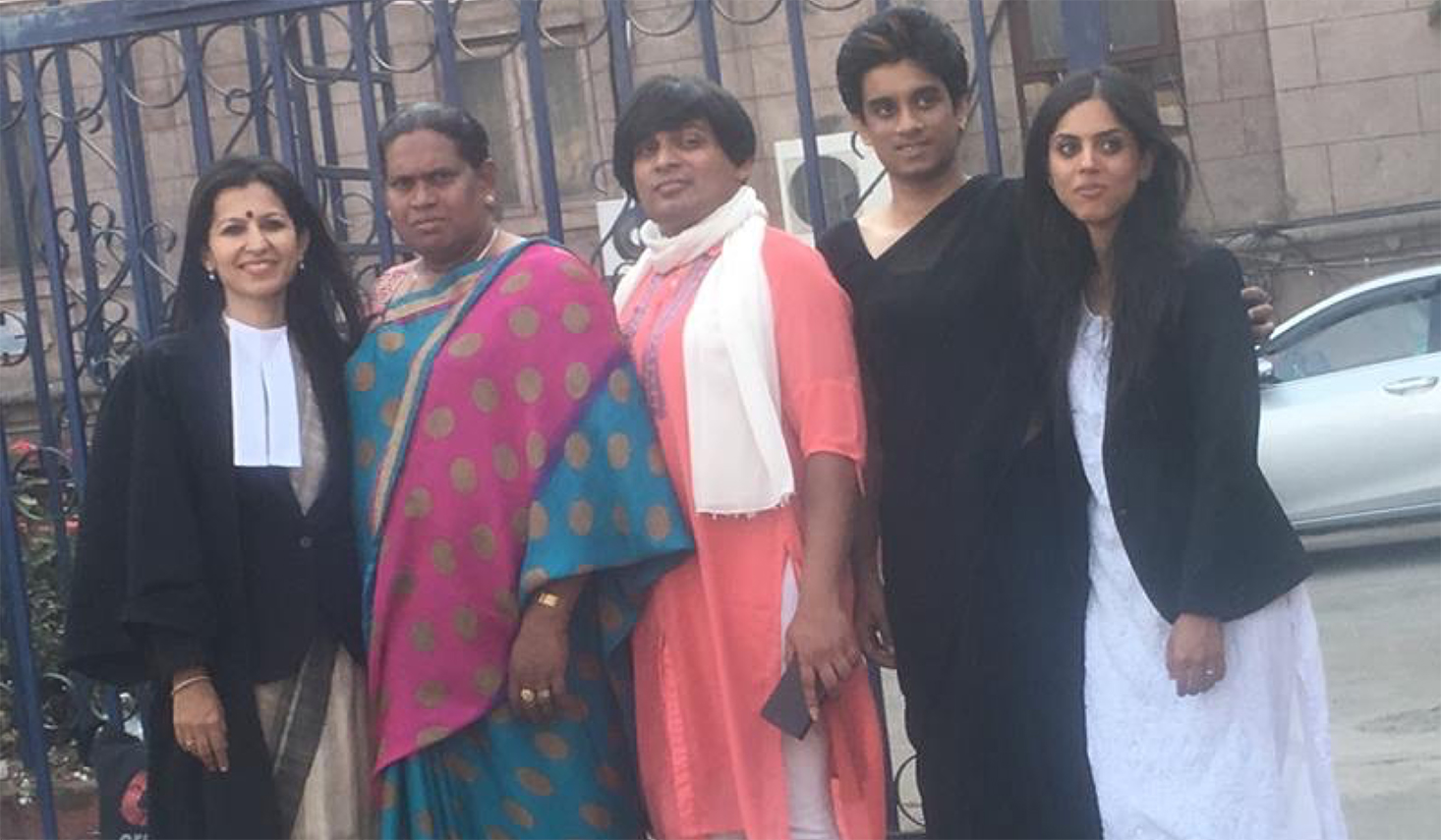
This summer, a five-year legal battle came to an end when the Telangana High Court in India struck down the Telangana Eunuchs Act of 1919 on the grounds that it was “unconstitutional” and intruded on the private lives of transgender people. The draconian legislation forced all trans people to register information such as their place of residence with the authorities because, according to the Act, they were “reasonably suspected of kidnapping or emasculating boys, or of committing unnatural offences or abetting…said offences.”
Vyjayanti Vasanta Mogli, a prominent Indian trans activist who works with the Centre for Law and Policy Research (CLPR), a leading public policy think tank that engages in groundbreaking litigation and research that shapes trans rights in India, was one of the petitioners in the case against the Telangana Eunuchs Act. Here, she speaks to GAY TIMES about how its “sweeping and unrestrained powers” impacted trans people and what the final judgement of V. Vasanta Mogli vs. the State of Telangana means.
What was the Telangana Eunuchs Act and how did it affect trans people?
Previously known as the Andhra Pradesh (Telangana Area) Eunuchs Act, the legislation was first enacted more than 100 years ago in 1919. It mandated that all “eunuchs” – a derogatory term used to describe trans people – register information such as their home address with authorities due to being suspected of “kidnapping or emasculating boys” or of committing “unnatural offences”.
Describing it in more detail, Vyjayanti says the Act was both a “pre-independence” and “pre-constitutional” piece of legislation created by British colonisers. “This law had a lot of presuppositions,” she explains. “It assumed that all quote unquote ‘eunuchs’ or transgender persons were pedophilic and it gave sweeping powers to the police to arrest transgender persons without a warrant. Every police station had to maintain a register of ‘eunuchs’ with their photographs, like how prisoners have their mug shots, as they say, and display all of that on a notice board, like wanted criminals – so it gave sweeping and unlimited powers. It also said that any ‘eunuch’ found in the company of a minor, anybody who’s below 18, should be arrested without a warrant.”
Explaining the dangerous consequences this had for trans people, Vyjayanti continues: “What if the transgender person is a teacher, a home tutor, a dance or a music teacher? They will be in the company of children.” This led to an array of issues with police, who treated trans people “like the accused” whenever they needed help. “Many of our transgender friends were tossed around in India,” Vyjayanti adds. “If at all there is a complaint against a transgender person, it is assumed that it is true. But if there’s a complaint from a transgender person, it is assumed that it is false.”
What does the term “eunuch” mean?
Vyjayanti describes “eunuch” as “a very dehumanising word that people don’t use today” as it is a derogatory slur for trans people. She explains that it “strips the person of dignity and personhood” because its definition is “an emasculated or a castrated male body”. Vyjayanti continues: “So the word ‘eunuch’ is not a term that any transgender person would like to be used for them because the English dictionary meaning of the word ‘eunuch’ just means an emasculated or a castrated male.”

What was the V. Vasanta Mogli vs. the State of Telangana case about?
In 2018, Vyjayanti and others filed petitions against the law for violating the rights of trans people under India’s constitution. The Telangana High Court then ordered that, while considering the public interest litigations (PILs), no arrests or prosecutions could be made under the Act. In V. Vasanta Mogli vs. the State of Telangana, the Court was asked to come up with a “comprehensive policy” in relation to protecting the rights of trans people, as well as to establish Transgender Welfare Boards similar to those in West Bengal and Maharashtra. Campaigners also sought COVID-19 relief for trans people in the form of things such as rations and health facilities, as well as an extension to a 2014 scheme that provided a monthly pension to society’s “most vulnerable” in India.
What did the Telangana High Court decide?
The law was deemed to be in violation of Article 14, which protects the right to equality, and Article 21, the right to protection of life and personal liberty. It was ultimately struck down by the Court because of the way it criminalised “the entire transgender community” and impacted their day-to-day lives.
Discussing the ruling in more detail, Vyjayanti says: “The High Court gave a final judgement that transgender persons below the poverty line who are working class and who are below a certain income criteria, must get state aid in the form of pensions, particularly if they are above a certain age. It’s not a lot of money. It’s a very meagre amount, but that is something particularly for senior citizens, those who are immunocompromised, HIV-positive, those who are sex workers. It is some kind of a basic subsistence allowance for them. It’s not a lot of money. It would be perhaps ₹3,000 [£30].”
Although the amount is “definitely not enough,” Vyjayanti is “hopeful” it can still help those who need it most. “In villages, ₹3,000 is enough to scrape through a month,” she explains. “It’s definitely not enough in cities, in state capitals…I don’t think it’s going to take care of all their costs. Perhaps in villages they’ll be able to pay their food bills, but not in cities.”
In addition to this, Vyjayanti says the Court ordered that the government of Telangana must “come up with a comprehensive policy on reservations in school education, college education, higher education, public education and public employment.” In effect, Vyjayanti hopes this will “allow transgender persons to access education and thereby access employment, both private in open competition and public employment through some form of affirmative action.”


